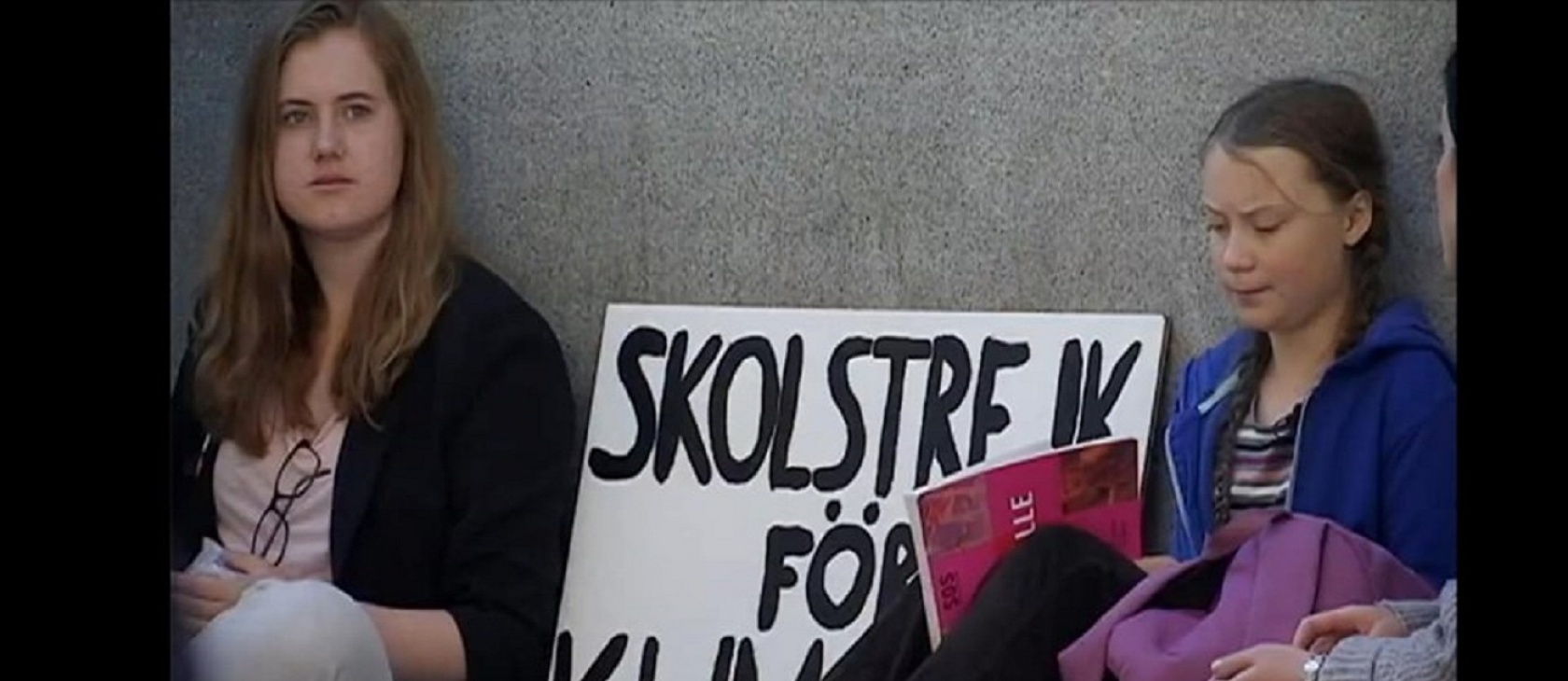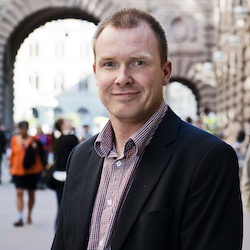This week’s UN Climate Summit in New York may have marked the zenith of Greta Thunberg’s activist career. Sincere as she may be, the message and movement around her still contain hazards for democratic society. I have a say in this because - although involuntarily - I may have inspired her.
The journey of this school-striking child has been truly mind-blowing. I noticed in a TV clip from Greta’s early activism last summer outside Swedish parliament that she was reading her social science textbook. And to my surprise, I recognized that it was a book I had co-authored.
When I think of the school book Greta was reading when it all began, I think about the illustration to the chapter I wrote about influencing society: a photo of an enraged young girl travelling by train to a demonstration at a UN summit. I don’t pretend to be her defining source of inspiration. But still, Greta’s unparalleled one-year-voyage from a lonely seat by the parliament to her current position as the informal leader of a global movement gives me reason to raise a loving warning.
Adults need to manage the balance of making wise and reflective decisions, while simultaneously avoiding the perils of panic and adopting a child’s engaged but still limited worldview.
To be sure, climate and environment are important topics. However, their solution is not found in panic, but in well-conceived plans. In her speeches Greta has repeatedly, and apparently with growing frustration, declared that politicians do nothing, and that the causes behind the climate threats are found in the capitalist system. But both claims are untrue. Instead, the climate situation calls for skilled and bold entrepreneurs who can invent, and market, climate-benefitting tools for the twenty-first century. The solution lies in making such decisions that would make a real change, instead of sending general accusations against those who are making a positive impact.
Several people have called Greta Thunberg a modern prophet. Uncompromising as she may be in challenging authorities, she does not fill the role of an Old Testament prophet. She does not pretend to be the voice of God. On the contrary, her message reflects a hope for earthly salvation, whereby mankind can save itself from the evil forces behind the climate threat. This view has its deficiencies as well; the real culprit in this drama is not the market economy, but rather the ego-centred, short-sighted philosophy which appears all over the field of human activity: among individuals, politicians and yes, even radical youth movements.
Here is also where Greta’s message may turn downright dangerous. Her concluding words to the UN - “Change is coming, whether you like it or not” - ring uncomfortable historical bells. The same applies to her words which were highlighted on the UN building some days earlier, that it is no longer good enough for the politicians to do their best: “Everything needs to change. And it has to start today.” Such revolutionary phrases have swept over the world before, rarely with good consequences.
Wherever Greta’s main inspiration may have come from, her journey has given rise to ideas which may be not only counter-productive but also highly risky to our democratic system. Adults need to manage the balance of making wise and reflective decisions, while simultaneously avoiding the perils of panic and adopting a child’s engaged but still limited worldview. Therefore, instead of attacking the capitalist system, both Greta and people of goodwill around the world should be directing our focus against, for instance, China and other large coal users, to make them abandon their coal industry. That would create the real results that the young movement around Greta needs.




